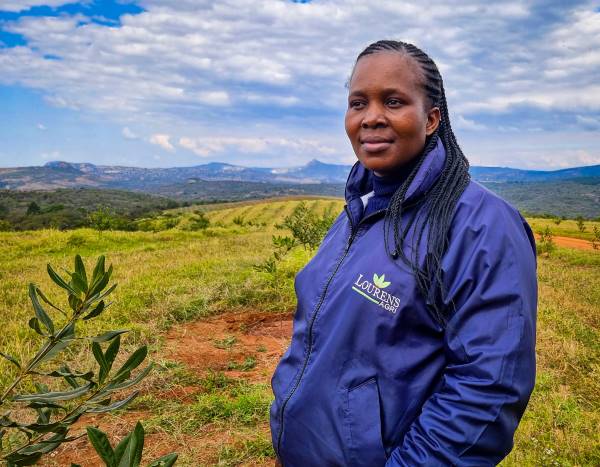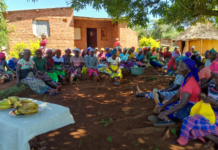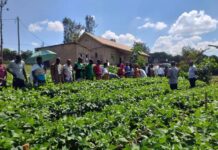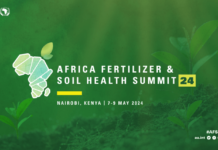The commemoration of Women’s Day has once again shone the spotlight on the challenges that impede women’s development in the agricultural sector. Despite these challenges, a community of female farmers who are beneficiaries of the land reform programme from the Giba Communal Property Association (CPA) have overcome these obstacles and have already created 122 jobs in the agriculture sector.
These female farmers have bucked the trend of the obstacles outlined in the 2022 Quarterly Labour Force Survey (QLFS) Quarter 1, which found that black African women are the most vulnerable, with an unemployment rate of 40,6%. The report also found that this is 4,1% points higher than the national average for women at 36,4%.
The Giba CPA is located in Kiepersol, near Hazyview, and has been documented by the 2017 Census of Commercial Farming report. Members of the Giba community lodged a land claim in the late 1990s. In 2003, the community of land claimants formed the Giba Communal Property Association. The CPA consists of approximately 417 registered beneficiary households.
The CPA was awarded restitution of 2 700 hectares of land and about 1 540 hectares of the land have been transferred to date. The remaining 1 166 hectares are state-owned and are yet to be transferred. The land is considered prime agricultural land in terms of soil, climate, water quality and is suitable for all high-value tropical crops.
According to Giba’s CPA Secretary Zelda Maseko, the capitalised agricultural zone comprising bananas, avocados, macadamias and other high value orchards, employs 256 people who come from the community of Kiepersol.
“The majority of the workers here are women. This is our intervention to directly empower women from the area. We also produce ginger and 100 part-time workers have been employed for that part of the farm produce. Our view is that women can play a significant role in farming, and as land reform beneficiaries we have been able to establish partnerships that have enabled us to make this land profitable. Similar initiatives can significantly narrow the unemployment gaps in communities and improve employment opportunities and skills for more women.” She adds that in their own way they have made a dent in unemployment in their community.
She concedes that the CPA owes part of its success to the interventions spearheaded by the Vumelana Advisory Fund, a non-profit organisation that assists beneficiaries of the land reform programme to develop their land in an effective and sustainable way. We are proud to be associated with this project and to have been involved in supporting the Giba CPA, commented Peter Setou, Chief Executive of Vumelana. This bears testimony to the fact that closer collaboration of private sector players and land owning communities is critical for sustainable land reform.
Vumelana supported the Giba CPA by facilitating partnerships with prospective investors who provided much-needed finance and technical expertise to enable the community to make their land profitable. Maseko points out that the strategic importance of these partnerships should never be underestimated.
Commenting on the reported widespread failure of many land reform programmes, Maseko, who has been with the Giba CPA for three years, notes, “It is a futile exercise to award people land, particularly agricultural land, without complementing that with training on how to use the land productively. Land allocation should be preceded by training first – financial support is equally important, because without funding, nothing moves. The communities should be encouraged to form co-operatives as well as assisted with funding to start up. Then more women should be roped in and assisted in setting up markets for their produce. Without this, we will always be talking about failed land instead of the potential and successes that can be achieved from the restitution programme.”
Despite the success they have achieved in retaining the productivity of the claimant land, Maseko says the CPA still faces structural and cultural challenges.
For as long as stereotypes persist that women cannot perform certain functions, equal representation will remain a dream, says Maseko. To address this, the reform process should become more inclusive and provide full and equal opportunities for both men and women.
“They (women) too should be afforded an opportunity to become farm managers and human resource personnel, as opposed to being relegated to the periphery or confined only to administrative roles. These stereotypes are some of the challenges that impede women from making their mark in the agriculture sector. Our communities still do not have a commitment to embrace the potential of women in agriculture in management roles. There is still a bias towards men. There needs to be a proper sharing of skills with women, and this could be done through interventions such as intensive training and regular workshops. In the absence of rigorous and deliberate efforts to empower women, the sector will remain the preserve of men, and women will not realise their full potential,” says Maseko.
She says the agricultural sector has an important role to play to eradicate unemployment and upskill women. However, the industry is constrained by patriarchal practices that constrain it from reaching its full potential.
“Our land reform process could play a meaningful role to eradicate poverty and unemployment, particularly for women from the previously disadvantaged communities. In our committees and associations, we need to ensure that we strike a balance with regard to equal representation. Admittedly, a lot has been achieved in the sector but more still needs to be done to uplift women. We would like to see land reform creating more opportunities for our community, particularly for our women,” she concludes.









